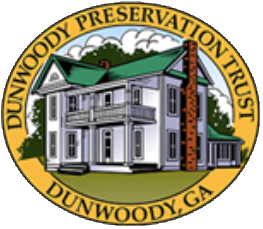Discover Dunwoody: Where History Meets Innovation
Dunwoody, a vibrant city nestled amidst the lush greenery of suburban Atlanta, offers a unique blend of small-town charm and big-city amenities. Renowned for its excellent schools, safe neighborhoods, and thriving high-tech job market, Dunwoody is an ideal destination for those seeking a balanced lifestyle. But Dunwoody is more than just a convenient location and modern conveniences; it's a city steeped in history, with a story that stretches back centuries.
Originally inhabited by the Cherokee tribe, who recognized the area's abundance and called it the "standing peach tree," Dunwoody has long been a place where people have thrived. In the 1820s, European settlers arrived, establishing homesteads and cultivating the land. Among them was Major Charles Dunwoody, a prominent figure whose contributions to the Roswell Manufacturing Company and the construction of the Roswell Railroad helped shape the area's development. The railroad, with its Dunwoody Station and affectionately nicknamed engines, "The Dinkey" and "Old Buck," played a crucial role in connecting the community to the wider world.
Today, Dunwoody retains its historical charm while embracing modern progress. Perimeter Mall, a premier shopping destination, stands as a testament to the city's growth and transformation. But Dunwoody is also a city that values its natural beauty and cultural heritage. The Dunwoody Nature Center offers a tranquil escape, while the Spruill Center for the Arts fosters creativity and community engagement. With its diverse array of top-rated restaurants, well-maintained parks, and vibrant community events, Dunwoody has something to offer everyone.
Explore Dunwoody and discover its unique story:
- Walk the trails at the Dunwoody Nature Center and imagine the Cherokee people who once called this land home.
- Visit the site of the former Dunwoody Station and picture the bustling activity of the Roswell Railroad in its heyday.
- Stroll through Dunwoody Village and experience the city's small-town charm.
- Catch a performance at Stage Door Players and immerse yourself in the local arts scene.
- Celebrate Dunwoody's history and community spirit at the annual Dunwoody Hometown Parade.
Key Dates in Dunwoody's History:
- 1820s: White settlers begin to arrive in the Dunwoody area.
- 1881: The Roswell Railroad begins operation.
- 1971: Perimeter Mall opens.
- December 1, 2008: Dunwoody officially becomes a city.
Come experience the unique blend of history, nature, and modern living that makes Dunwoody a truly special place.
More Info:




